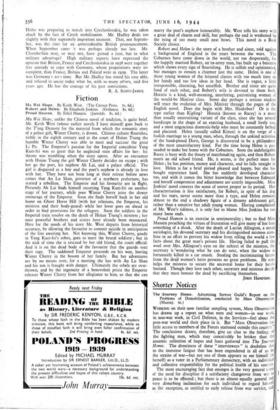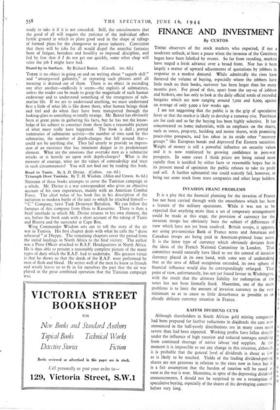Shorter Notices Woluum on their now familiar sampling system, Mass
Observation has drawn up a report on what men and women—in war work, in non-war work, in Civil Defence, in the Services—feel about the post-war world and their place in it. But "Mass Observation has little access to members of the Forces stationed outside this country." The conclusions drawn, therefore, give no clue to the feelings of the fighting men, which may conceivably be brisker than the anaemic collection of hopes and fears gathered into The purneY Home. The dreariness of these " interviewees " is doubtless due to the immense fatigue that has been engendered in all of us by the strains of war—but not one of them appears to see himself (or herself) as a voter in a Parliamentary democracy, with an individual and collective responsibility for the political health of his count* The most encouraging fact that emerges is the very general sense of the need for discipline if a satisfactory changeover from war to peace is to be effected ; but there is an almost equally general and very disturbing inclination for each individual to regard himseu as the exception, as entitled to early release from war service, and
ready to take it if it is not conceded. Still, the consciousness that the good of all will require the patience of the individual offers fertile ground in which to plant good seed in the shape of tidings of formed plans for the changeover to peace industry. Conviction that there will be jobs for all would dispel the anarchic fantasies born of fatigue, boredom and hostility to imposed discipline, and fed by fear that if I do not get out quickly, some other chap will seize the job I might have had.



























 Previous page
Previous page